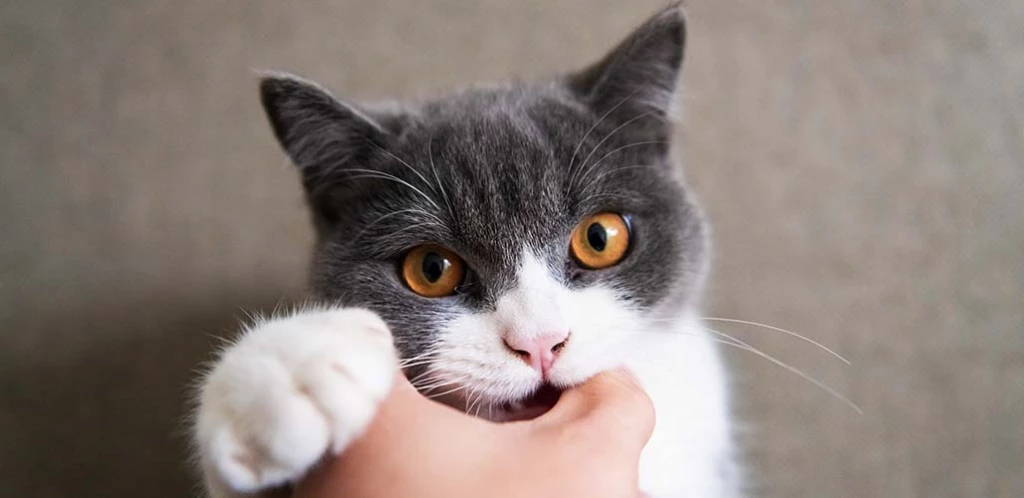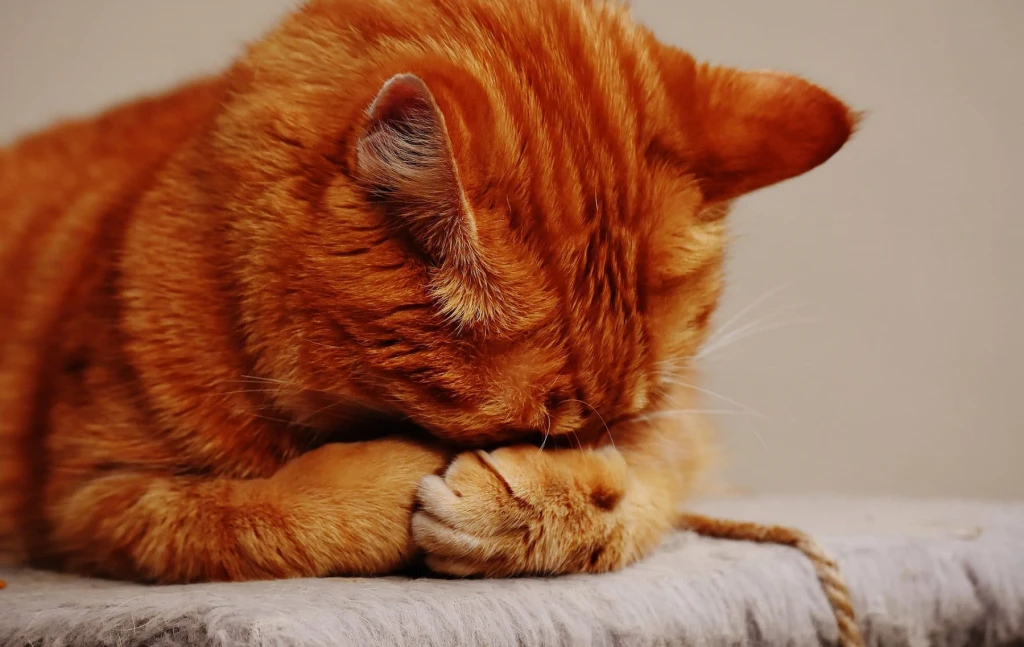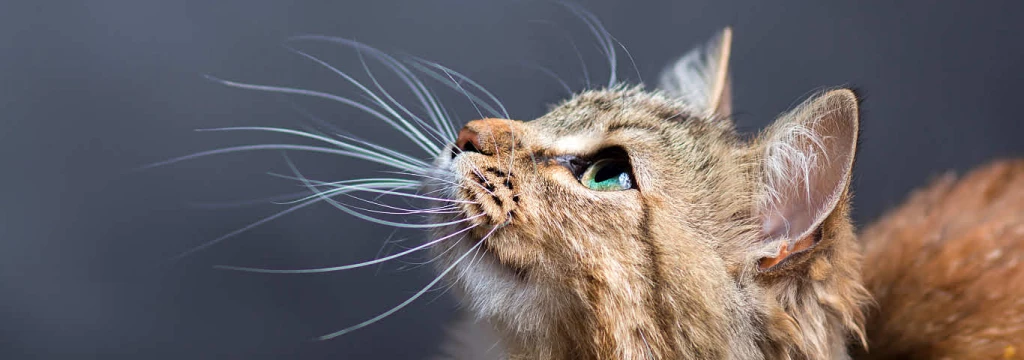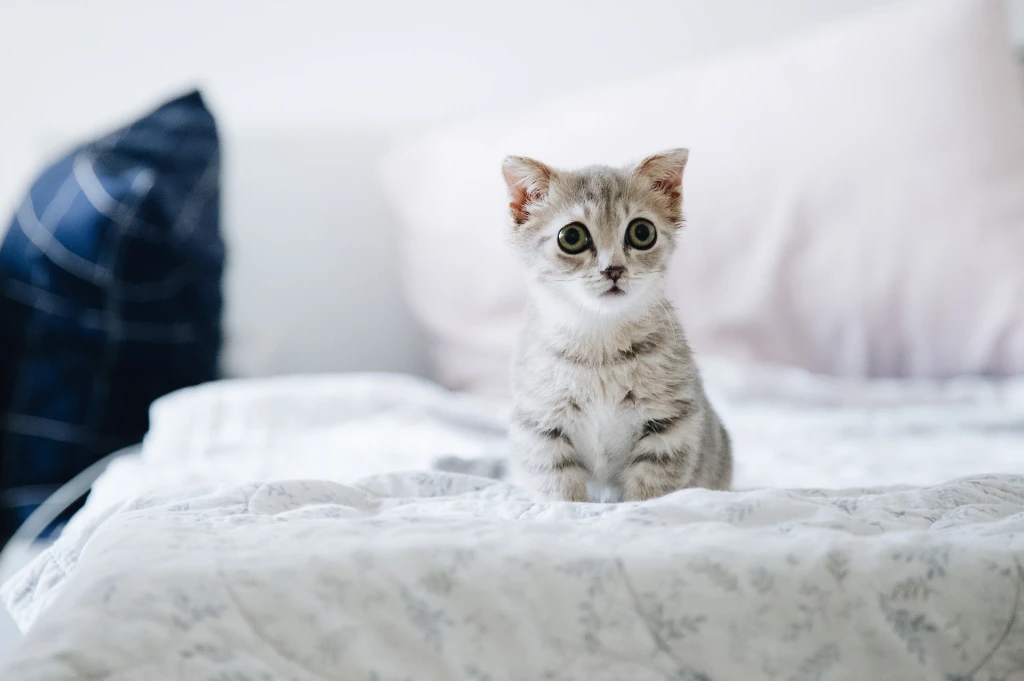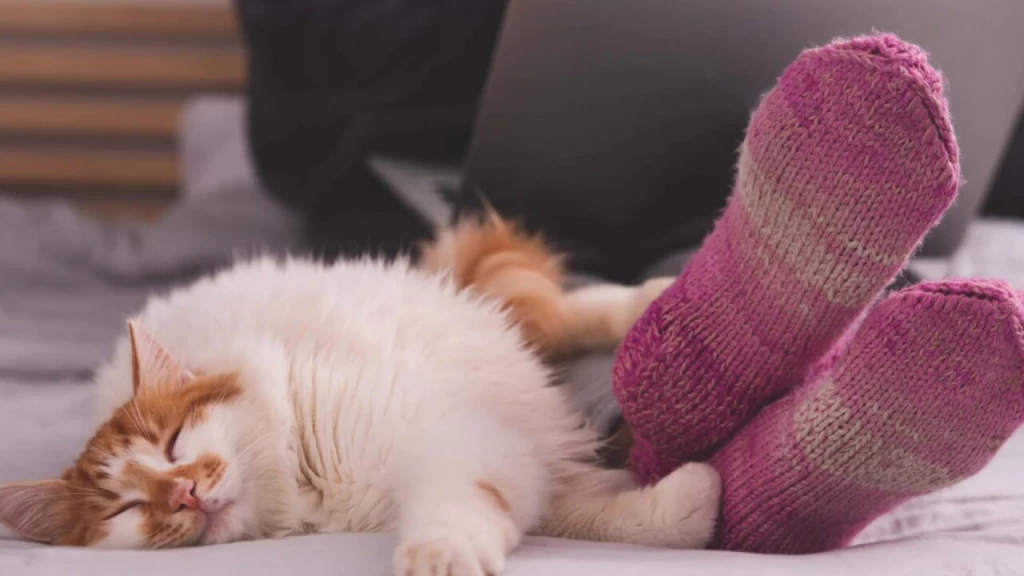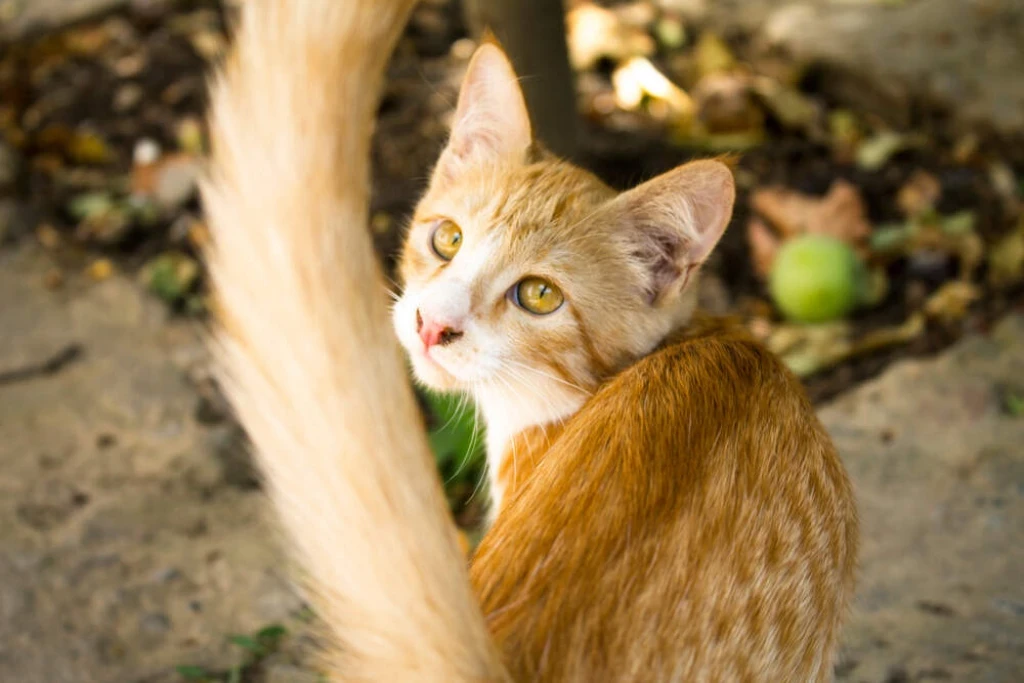Have you ever wondered why your cat bites you gently while purring? You may think that purring means your cat is happy and relaxed, but then they suddenly nip you and stop purring. What does this mean? Are they angry with you? Are they playing with you? Are they showing you affection?
In this blog post, we will explore the possible reasons why cats bite gently while purring and how to respond to this behavior. We will also give you some tips on how to prevent or reduce gentle biting and how to understand your cat's body language and signals. By the end of this post, you will have a better idea of what your cat is trying to tell you and how to make them happy and comfortable.
What Does Purring Mean?
Purring is one of the most distinctive and recognizable sounds that cats make. But what does it mean when your cat purrs? Is it always a sign of happiness and contentment, or can it indicate something else?
Purring is a form of vocalization that involves the vibration of the vocal cords and the diaphragm as the cat breathes in and out. Cats can purr at different frequencies and volumes, depending on their mood and situation.
Most people associate purring with a happy and relaxed cat, and that is often the case. Cats may purr when they are enjoying being petted, cuddled or groomed by their owners or other cats. Purring may also serve as a way of bonding and communicating with their human companions or their kittens.
However, purring is not always a sign of pleasure. Cats may also purr when they are in pain, stressed, frightened or injured. Purring may help them to cope with these situations by soothing themselves and reducing their heart rate and blood pressure. Purring may also have some healing benefits, as it can stimulate the growth and repair of bones, muscles and tendons.
Therefore, to understand what your cat's purring means, you need to look at the context and their body language. For example, if your cat is purring while lying on your lap with their eyes closed and their ears relaxed, they are probably feeling happy and comfortable. But if your cat is purring while hiding under the bed with their ears flattened and their tail tucked in, they are probably feeling scared or anxious.
What Does Biting Mean?
Biting is another common behavior that cats display, but it can have different meanings depending on the context and the intensity of the bite. Biting can be a way for cats to communicate, play, show affection or assert dominance. However, biting can also be a sign of discomfort, fear or aggression.
Biting can be a form of communication for cats. Some cats will bite as a way of asking for something they want, such as food, attention or access to a certain area. They may have learned that biting gets them a response from their owners or other cats. Some cats will also bite gently as a way of showing affection or gratitude. This is sometimes called a "love bite" and it is usually accompanied by purring, rubbing or licking.
Biting can also be a form of play for cats. Cats often bite during play because they are expressing their natural hunting instinct. For kittens, biting and bunny-kicking are normal play behaviors. They play like this with their littermates and mothers and it mimics how they pounce, grab and bite their prey. For adult cats, biting can be a way of engaging in a friendly wrestling match with another cat or a human. However, some cats may not have learned to control the force of their bites and may hurt their playmates unintentionally.
Biting can also be a form of dominance for cats. Some cats will bite to assert their position in the social hierarchy or to mark their territory. They may bite other cats or humans that they perceive as threats or intruders. Dominant biting is usually more forceful and aggressive than playful or communicative biting.
Biting can also be a form of discomfort, fear or aggression for cats. Some cats will bite when they are in pain, stressed, anxious or injured. They may bite to warn others to leave them alone or to defend themselves from a perceived danger. They may also bite when they are overstimulated by too much petting or attention. Fearful or aggressive biting is usually accompanied by other signs of distress, such as hissing, growling, flattening the ears or dilating the pupils.
Why Do Cats Bite Gently While Purring?
You may have experienced this scenario: you are petting your cat and they are purring happily, but then they suddenly bite you gently and stop purring. What does this mean? Are they angry with you? Are they playing with you? Are they showing you affection?
The answer is not so simple, as cats can bite gently while purring for different reasons. However, one thing is clear: gentle biting is usually a way for cats to communicate something to you or to other cats. Here are some possible reasons why your cat may bite gently while purring:
- Overstimulation: This is one of the most common causes of gentle biting while purring. Your cat may have enjoyed your petting at some point, but then they reached their limit and became overstimulated. A sudden bite is a way for them to tell you that they have had enough and that continuing to pet them annoys them. You may notice other signs of overstimulation, such as twitching ears, tail or skin, dilated pupils or flattened ears.
- Playfulness: This is another possible cause of gentle biting while purring. Your cat may be in a playful mood and want to engage in a mock hunting game with you or another cat. They may bite gently while purring to simulate catching their prey or to invite you to chase them. You may notice other signs of playfulness, such as wiggling their butt, pouncing or swatting with their paws.
- Affection: This is a less common but still possible cause of gentle biting while purring. Your cat may be showing you their love and gratitude by giving you a "love bite". They may bite gently while purring to mimic the grooming behavior that mother cats do to their kittens or that bonded cats do to each other. You may notice other signs of affection, such as rubbing their head or body against you, licking you or kneading you with their paws.
- Anxiety: This is a rare but still possible cause of gentle biting while purring. Your cat may be feeling nervous or stressed by something in their environment and purr as a way of self-soothing or calming themselves down. They may bite gently while purring to warn you or another cat to back off or leave them alone. You may notice other signs of anxiety, such as hiding, trembling, panting or scratching.
How to Respond to Gentle Biting?
Gentle biting is not a serious problem, but it can still be annoying or painful for you or other cats. Therefore, it is important to know how to respond to gentle biting in a way that discourages this behavior and teaches your cat better manners. Here are some tips on how to respond to gentle biting:
- Stop the interaction: The best way to respond to gentle biting is to stop whatever you are doing that triggered the bite. If you are petting your cat and they bite you gently, stop petting them and move your hand away. If you are playing with your cat and they bite you gently, stop playing and ignore them. This will show your cat that biting ends the fun and attention, and they will learn to associate biting with negative consequences.
- Say "ouch" or make a hissing sound: Another way to respond to gentle biting is to vocalize your displeasure. You can say "ouch" or make a hissing sound when your cat bites you gently. This will mimic the sounds that other cats make when they are hurt or annoyed by biting, and your cat will understand that they have crossed a line. However, avoid yelling or scolding your cat, as this may scare them or make them more aggressive.
- Redirect their attention: Another way to respond to gentle biting is to redirect their attention to something else. You can offer your cat a toy, a treat or a scratching post when they bite you gently. This will give them an alternative outlet for their energy, curiosity or affection, and they will learn to prefer these options over biting.
- Reward good behavior: Another way to respond to gentle biting is to reward good behavior. You can praise your cat, pet them or give them a treat when they stop biting or when they interact with you without biting. This will reinforce positive behavior and make your cat more likely to repeat it.
Conclusion
We hope you enjoyed this blog post and learned something new about why cats bite gently while purring. As you can see, cats can bite gently while purring for different reasons, such as overstimulation, playfulness, affection or anxiety. The key is to look at the context and their body language to figure out what they are feeling and what they want from you.
The best way to respond to gentle biting is to stop the interaction, say "ouch" or make a hissing sound, redirect their attention or reward good behavior. These methods will help you teach your cat that biting is not acceptable and that there are better ways to communicate or play with you. Remember to be patient and consistent with your cat and avoid yelling or scolding them.
We hope this blog post helped you understand your cat better and improve your relationship with them. If you have any questions or feedback, feel free to contact us. Thank you for reading and have a wonderful day with your furry friend!
